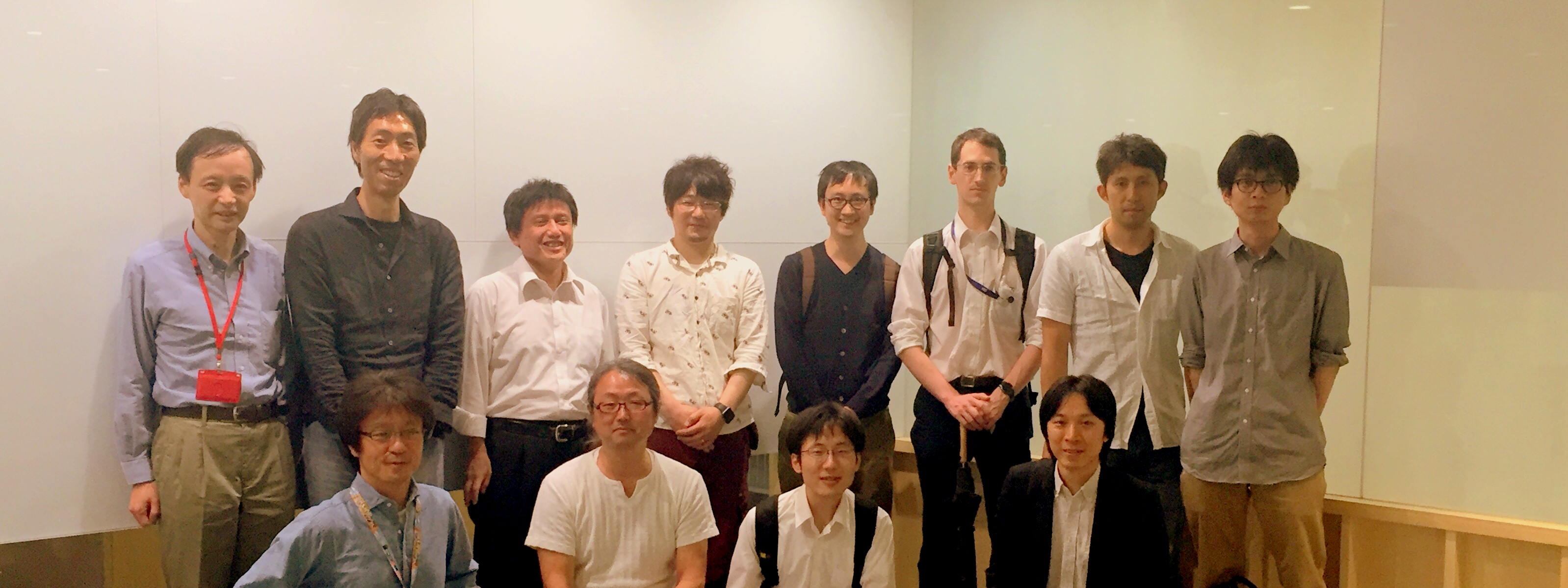Introduction
Currently, worldwide efforts for realizing AI as generic as human beings (or AGI) by expanding deep learning and reinforcement learning advance rapidly. OpenAI recently proposed four technical goals in this regard. Meanwhile, as technologies around AGI are quite vast, voices are rising for sharing technologies among stakeholders. Thus, it should be worthwhile also for WBAI to contribute to the open development of AI technologies and to democratize AGI.
With this background, WBAI aims to form an open AI development community of 10,000 people to create a movement for benefiting human welfare with technological advances. We believe the effort here for open AI development can be accelerated with the world-beating rate by gathering engineers and experts coming across the boundaries between organizations.
Activities so far
LIS, a learning simulation environment for AI, is being developed with our involvement.
Moreover, Mr. Junya Kuwada accomplished a remarkable feat by implementing Deep Predictive Coding Networks (Deep PredNet) at our hackathon ([GitHub] [article in Japanese]) held on the weekends of July 12 and 19. Deep PredNet, which can be an excellent candidate of the model of the neocortex from the viewpoints of performance, distributedness, and biological plausibility, had been reported by William Lotter, Gabriel Kreiman, David Cox in their report published on ARXIV on May 26, but its implementation had not been released. Out of this hackathon, reports and implementations have been released (in Japanese) from participants including Mr. Kunimasa Kawasaki, who was an intern at the Dwango AI lab [PredNet with Chainer & PredNet with keras], and Mr. Kouji Ochiai.
An open AI community (SIG-WBA) launched
The situation above made WBAI create a special interest group for WBA developers on Slack to accelerate collaboration in an open AI development community, integrating the activities on LIS and PredNet. (Currently, threads are in Japanese.)
Discussions were held at the first meetup on June 21 and presentations were made at the second meet-up by Mr. Ochiai (on PredNet), Mr. Taichi Iki (on GRU-PredNet [GitHub]), and Mr. Takamitsu Omasa (on Double-DQN with ATARI 2600 games [GitHub][Video]).
Participants are to consent to our Contributor License Agreement.
Future Direction
We are going to work on various issues together with engineers in the community and with directions by researchers in the WBA approach on important themes.
Issues may include:
- Development of learning environment such as LIS
- Development and evaluation of machine learning algorithms such as PredNet
- Experiments with AI agents that learns behaviors in interesting environments
- Implementing new cognitive functions for AI agents
- Data analysis and tool development in neuroscience for the WBA approach
We believe these activities accelerate the development of AGI through the WBA approach. While our activities are not for recruitment or profit, members of the community could bring back knowledge created and shared here to make it a source for competitiveness.
Thus, we invite you to join us for making a grand R&D movement to bring about breakthroughs!
While the current core members of the community are experts, the community will be welcoming engineers with varied levels of experiences. We encourage anyone motivated to contact here on our site. (We also have a WBAI-dev group for discussions in English.)
The Whole Brain Architecture Initiative, a specified NPO



 Japanese
Japanese